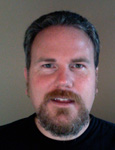My colleague Alan MacEachern and I have decided to write a book to teach practicing historians how to use programming to augment their ability to do research online. The Programming Historian will be provided as an open access work via the website of NiCHE: Network in Canadian History & Environment. We'll announce the details soon. In the meantime, here are a few things that will make this work different from existing books about programming...
1. We think that you should be able to put what you learn to work in your research practice immediately. Many beginning programmers lose patience because they can't see why they're learning what they're learning.
2. Digital history requires working with sources on the web. This means that you're going to be spending most of your research time working in a browser, so you should be able to use your programming skills in the browser.
3. Our examples will build on real historical sources online and on open source projects in the digital humanities. In particular, the programs that you create will be tightly integrated with Zotero.
4. We'll draw on a wide range of techniques from information retrieval; text, data and web mining; statistical natural language processing; machine learning; and other disciplines.
If you'd like to contact us with questions or comments, there is contact information on our faculty web pages: Turkel & MacEachern.
Tags: browser | digital history | open access | open source | programming | Zotero
skip to main |
skip to sidebar
Methodology for the infinite archive.
William J. Turkel
-

- Faculty Webpage
- Current Website
- Cite this as:
- Turkel, William J. Digital History Hacks: Methodology for the Infinite Archive (2005-08). [Weblog.]
The Programming Historian
Are you interested in learning how to program? Check out The Programming Historian, an open-access introduction to Python programming for working historians (and other humanists) with little previous experience.
Digital Historians / Humanists
- Ahmed, Manan
- Alexander, Keith
- Barry, Jeff
- Blevins, Cameron
- Boggs, Jeremy
- Brennan, Sheila
- Bruggeman, Seth
- Brumfield, Ben
- Burke, Timothy
- Caraher, William
- Champion, Erik
- Chudnov, Dan
- Cohen, Dan
- Compeau, Tim
- Crombez, Thomas
- Crymble, Adam
- Davisson, David
- Day, Shawn
- Downey, Brian
- Elliott, Tom
- Fischer, Suzanne
- Gillies, Sean
- Graham, Shawn
- Greenberg, Josh
- Holman, Brett
- Howard, Sharon
- Joyce, Matt
- Kee, Kevin
- Kelly, Mills
- Kerr, Ross
- Kirschenbaum, Matt
- Krishnan, Shekhar
- Larkin, John
- Lee, John K
- Lester, Dave
- MacCallum-Stewart, Esther
- MacDougall, Rob
- McClurken, Jeff
- Parry, David
- Petrik, Paula
- Quiroga, Nicolas
- Ralph, Joel
- Ramsay, Stephen
- Ratto, Matt
- Reagle, Joseph
- Robinson, Gavin
- Rockwell, Geoffrey
- Sadler, Bess
- Scheinfeldt, Tom
- Sinclair, Stéfan
- Smith, Greg J
- Spiro, Lisa
- Terras, Melissa
- Urban, Richard
- Whitelaw, Mitchell
- Woods, Rebecca
- Yee, Raymond
Digital History / Humanities
- Amer Assoc History & Computing
- CDRH
- CHNM
- Cliopatria
- Digital Arts & Humanities
- Digital Campus
- Digital Clio
- Digital History
- Doing Digital History
- Electronic Textual Cultures Lab
- Historia i Media Feeds
- I Shot the Cyborg
- IATH
- Information Aesthetics
- John Battelle's Search Blog
- Lorcan Dempsey's Weblog
- MITH
- MONK Project
- NYPL Labs
- Open Access Journals
- PF-DSpace
- Programmable Web
- ResearchBuzz
- Richmond Digital Scholarship Lab
- Stoa Consortium
- TAPoR
- Ten Thousand Year Blog
- THAT Podcast
- Visible Archive